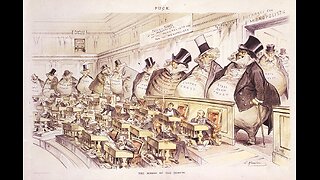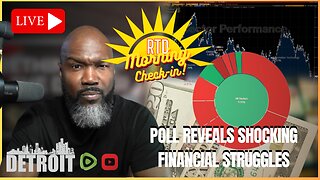What is ECONOMIC RENT?
✪✪✪✪✪
http://www.theaudiopedia.com
✪✪✪✪
What does ECONOMIC RENT mean? ECONOMIC RENT meaning - ECONOMIC RENT definition - ECONOMIC RENT explanation. What is the meaning of ECONOMIC RENT? What is the definition of ECONOMIC RENT? What does ECONOMIC RENT stand for? What is ECONOMIC RENT meaning? What is ECONOMIC RENT definition?
In economics, economic rent is any payment to a factor of production in excess of the cost needed to bring that factor into production. In classical economics, economic rent is any payment made (including imputed value) or benefit received for non-produced inputs such as location (land) and for assets formed by creating official privilege over natural opportunities (e.g., patents). In neoclassical economics, economic rent also includes income gained by beneficiaries of other contrived exclusivity, such as labor guilds and unofficial corruption.
Economic rent should not be confused with producer surplus, or normal profit, both of which involve productive human action. Economic rent is also independent of opportunity cost, unlike economic profit, where opportunity cost is an essential component. Economic rent should be viewed as unearned revenue, whereas economic profit is a narrower term describing surplus income greater than the next best risk-adjusted alternative. Unlike economic profit, economic rent cannot be eliminated by competition, since all value from natural resources and locations yields economic rent.
In regard to labor, economic rent can be created by the existence of guilds or labor unions (e.g., higher pay for workers, where political action creates a scarcity of such workers). For a produced commodity, economic rent may also be due to the legal ownership of a patent (a politically enforced right to the use of a process or ingredient). For occupational licensing, it is the cost of permits and licenses that are politically controlled as to their number, regardless of the competence and willingness of those who wish to compete in the area being licensed. For most other production, including agriculture and extraction, economic rent is due to a scarcity of natural resources (e.g., land, oil, or minerals). When economic rent is privatized, the recipient of economic rent is referred to as a rentier.
By contrast, in production theory, if there is no exclusivity and there is perfect competition, there are no economic rents, as competition drives prices down to their floor.
Economic rent is different from other unearned and passive income, including contract rent. This distinction has important implications for public revenue and tax policy. As long as there is sufficient accounting profit, governments can collect a portion of economic rent for the purpose of public finance. For example, economic rent can be collected by a government as royalties or extraction fees in the case of resources such as minerals and oil and gas.
Historically, theories of rent have typically applied to rent received by different factor owners within a single economy. Hossein Mahdavy was the first to introduce the concept of "external rent", whereby one economy received rent from other economies.
-
 59:34
59:34
The Memory Hole
1 month agoHow the Rich Get Welfare
8871 -
 1:00
1:00
alexlunaviewer
1 month agoThe US rent prices vs income, this is what it means to have rampant capitalism
4094 -
 53:07
53:07
Rethinking the Dollar
25 days agoEconomic Hardship Hits Middle Class: 65% of Americans Struggling to Make Ends Meet
44.2K24 -
 3:10
3:10
GuidingYourMortgage
29 days agoHow Affordable Is A House Today?
4 -
 8:03
8:03
LenaPetrova
1 month ago🚨 From BAD to WORSE: Skipping Meals to Afford Rent in US? | 2024 Housing Crisis Gets Worse
2.74K30 -
 0:57
0:57
Money, Motivation and Store
1 month agoWhy Mike The Situation Didnt Pay Taxes?
33 -
 1:33:56
1:33:56
LIBRadio
29 days agoThe Economic Viability of the New Black Towns
70 -
 11:00
11:00
ThisisJohnWilliams
30 days agoHow The Housing Market Gets Rug Pulled (w/100% PROOF!)
1301 -
 4:53:42
4:53:42
Evergreen0I0AM
1 month agoECONOMIC PHILOSOPHY JOAN ROBINSON
7 -
 4:35
4:35
RajbirMangat
1 month agoCanadians flee expensive cities for affordable living: Statistics Canada
151